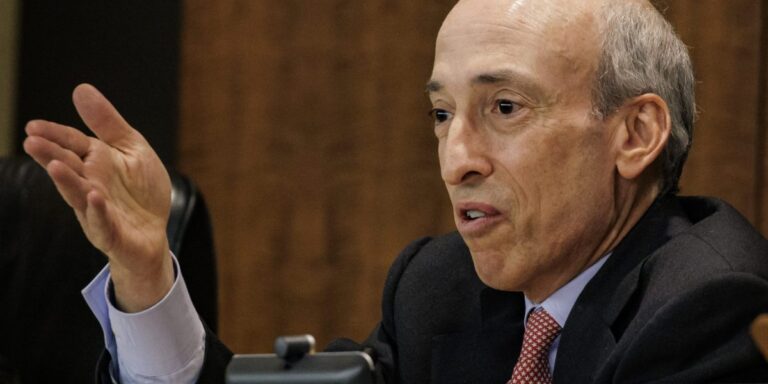As the crypto industry continues to seek regulatory clarity, a big question is whether stablecoins, digital assets pegged to and backed by the U.S. dollar, should be treated as securities. Now, the SEC’s decision to quietly close its investigation into New York-based stablecoin issuer Paxos suggests that, at least in most cases, the answer is no.
On July 9, interim head of the cryptocurrency and cyber division Jorge Tenreyro told Paxos that he does not intend to recommend enforcement action, according to a letter shared with the company. luckThe notice comes more than a year after the SEC sent Paxos a Wells Notice, or letter signaling imminent enforcement action, regarding the dollar-backed BUSD stablecoin that Paxos issued in partnership with Binance.
The SEC's withdrawal comes just days after it suffered a partial loss in its lawsuit against major crypto exchange Binance. The SEC's decision marks an unexpected victory for the stablecoin industry, which now includes companies like PayPal and VanEck, as Congress continues to delay action on legislation to regulate the growing asset class.
“It's a huge relief for us that this investigation has now been officially concluded,” Walter Hessert, Paxos's head of strategy, said in an interview. luck“This is something we have been hoping for all along and we hope that with more large companies coming on board, it will create more certainty in the market.”
In response to a request for comment luckAn SEC spokesman said, “The SEC does not comment on whether or not there is an investigation.”
The quest for stability
New York-based Paxos first launched BUSD in partnership with Binance in September 2019. While the dollar-backed stablecoin never overtook rivals Tether or USDC, it quickly became one of the leaders in the emerging space thanks to its role in the Binance ecosystem.
Although BUSD was pegged to the US Dollar, the SEC later argued in its lawsuit against Binance that the stablecoin was an investment contract and therefore a security because BUSD made profits through both Binance and Paxos' reserves, and some of those profits were passed on to Binance users in the form of yield. While the lawsuit did not file until June 2023, the SEC conveyed its position to Paxos in a February 2023 Wells Notice. In a statement at the time, Paxos disagreed with the SEC's position, arguing that BUSD was backed 1:1 by dollar-denominated reserves, but did not later elaborate on the SEC's allegations about profits generated by the reserves.
The SEC's action against Paxos sent shock waves through the cryptocurrency industry. While stablecoins remain in a regulatory grey area in the absence of new legislation, many argue that the lack of an expectation of profit — a key criterion for judging a security — sets them apart from many other crypto assets.
The investigation has lasted more than a year, and authorities luck The agency appeared to change its position, confirming that the information request was “active and ongoing” as of July 3. However, the agency appears to have changed its tune after a federal judge sided with Binance in a June 28 ruling that the sale of BUSD was not an offering of securities and ordered the charges to be dropped.
talk luckHessert said Paxos has been forced to operate under the “cloud” of the Wells Securities notice for more than a year, which has affected its ability to partner with new companies, including PayPal. “It will certainly accelerate some very exciting corporate discussions,” he said.
The decision could also bolster the U.S. stablecoin sector as companies look overseas to launch new services amid regulatory uncertainty.


